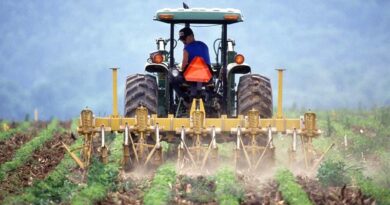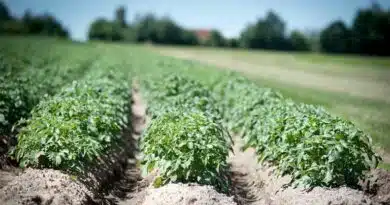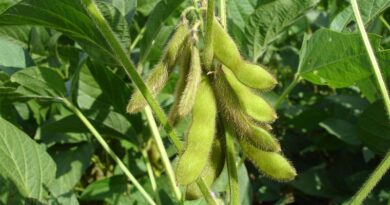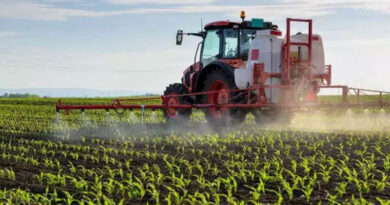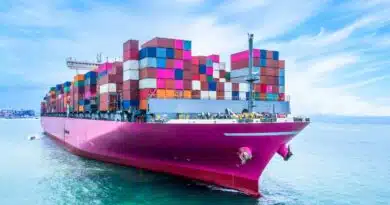
Bioprospecting in Brazil: How Fernando de Noronha’s Microbial Diversity is Powering the Future of Sustainable Agriculture
17 September 2025, Brazil: The Fernando de Noronha archipelago, a global reference in environmental conservation and a UNESCO World Heritage Site off Brazil’s northeastern coast, is home to rich marine biodiversity, boasting around 500 cataloged species—including reef fish, mollusks, cnidarians, and sponges—many of which are endemic and found nowhere else on Earth. This wealth is sustained by a rare combination of natural conditions, including oligotrophic waters with low nutrient concentrations and high transparency, allowing deep penetration of sunlight. When ocean currents are favorable and human intervention is minimal, these factors combine to create an ideal environment for unique biological communities, including rare microorganisms adapted to extreme conditions. In this context, Apoena Agro, a Brazilian biotechnology company that develops sustainable solutions from the country’s biodiversity, conducted its second scientific bioprospecting expedition in Fernando de Noronha in July. The aim was to identify new microbial strains capable of generating innovative bio-inputs for agriculture.
Brazil today is one of the world’s agricultural powerhouses, and the sector’s performance remains decisive for the economy: in 2024, agribusiness accounted for approximately 23.5% of Brazil’s GDP, according to estimates from the Center for Advanced Studies on Applied Economics (Cepea/ESALQ-USP) and the Brazilian Confederation of Agriculture and Livestock (CNA), with prospects for growth in 2025 as several production chains recover. This global leadership, however, comes with a challenge: ensuring increased food production to meet population growth while simultaneously reducing environmental impacts. To achieve this, it is essential to expand the development of solutions that combine productivity, sustainability, and innovation—such as bio-inputs. These biological products, part of what has been called the “Biologicals Revolution,” use living microorganisms or natural compounds to stimulate plant growth, improve soil health, and control pests and diseases in more balanced ways. As a result, they help increase crop yields with lower environmental impact, reduce dependence on synthetic inputs, and contribute to regenerative farming systems and safer food production—directly aligning with the United Nations Sustainable Development Goals (SDGs).
Through bioprospecting, Apoena Agro aims to play an active role in this ongoing transformation of agriculture. The company develops exclusive bio-inputs based on Brazilian strains, using the country’s biodiversity as raw material. In addition to its two expeditions in Fernando de Noronha, Apoena has also conducted research in the Amazon, the world’s most diverse tropical rainforest. As a result of these initiatives in regions of high biological diversity, the company now maintains an exclusive microbial strain bank with more than 800 entries, continually expanded through new expeditions.
Bioprospecting in practice —Bioprospecting is a branch of biotechnology focused on the search for natural compounds with biological value, with the aim of developing new products and technologies. In the context of agricultural bio-inputs, the process involves identifying, collecting, isolating, and characterizing microorganisms from natural environments to map their functions and metabolites of interest, enabling the development of field-ready solutions. The greater the biodiversity of the ecosystem under study, the higher the likelihood of discovering novel strains with unique properties and diverse applications. In this context, Brazil stands out as a true open-air natural laboratory, since it hosts more than 20% of all known species on the planet.
Within this framework, the Fernando de Noronha archipelago—by bringing together unique natural conditions—emerges as a strategic site for the biotechnology sector and the development of next-generation bio-inputs. Apoena’s first expedition to the archipelago, in 2022, led to the isolation of 62 bacterial strains, which are now preserved and studied in the company’s environmental microorganism bank. “This time, we collected 47 samples, but it is still difficult to precisely estimate how many new microbial strains will be isolated, since the biological profiles of the target organisms make this number unpredictable. That, in fact, is part of the fascination of bioprospecting. Once strains are isolated, it is possible to identify specific properties that can be applied in the development of innovative agricultural solutions such as biofertilizers, biopesticides, or plant growth promoters,” explains Paula Segura-Ramírez, head of Apoena Agro’s Bioprospecting Laboratory.
Samples were collected from different environments across the archipelago—from shallow tide pools of just 30 centimeters deep to submerged reefs and rocky formations at depths of up to 27 meters. Sponges, ascidians, corals, algae, and sediments were among the materials gathered, revealing not only the ecological richness of the region but also the importance of understanding different layers of the marine ecosystem for sustainable bioprospecting. The entire collection process was led by Dr. Bianca Del Bianco Sahm, a specialist in microbial bioprospecting with extensive experience in scientific expeditions and in isolating microorganisms from marine environments.
Looking ahead, the company expects to broaden its scope of discoveries and accelerate the development of new products. To this end, additional strategies were employed to maximize the diversity explored: during collection, the variety of samples was expanded to cover different locations, microenvironments, and times of day, considering variations in depth and light exposure. In the laboratory, techniques were applied to stimulate interactions between microorganisms, revealing behaviors and compounds that would not be detected through conventional methods. Conditions such as temperature, salinity, and nutrients were also gradually adjusted to uncover hidden life forms and bioactive substances.
All isolated microorganisms will undergo advanced analyses, including metagenomic sequencing. This method allows comprehensive identification of the DNA of microorganisms present in the environment—including those that cannot be cultivated in the laboratory. By unveiling microbial diversity invisible to the naked eye, metagenomics expands the potential to discover novel bioactive compounds, making bioprospecting more precise, rapid, and promising for biotechnological applications.
The expedition also relied on strategic partnerships designed to accelerate the validation of discoveries. These included the Federal University of São Paulo (UNIFESP), Diadema campus, whose Microbial Interactions Laboratory assisted in identifying new strains through high-precision mass spectrometry, and the National Service for Industrial Training (SENAI), which is conducting the first functional screenings of strains—an essential step in determining the biological activity and agricultural potential of each microorganism.
All biological material collection was authorized by the Chico Mendes Institute for Biodiversity Conservation (ICMBio) through the Biodiversity Authorization and Information System (Sisbio), in full compliance with legal and sustainability standards. The project also adhered to the rules of Brazil’s National System for the Management of Genetic Heritage (SisGen) and guarantees the sharing of all results with the scientific community and conservation institutions, strengthening research networks and expanding knowledge of national biodiversity.
Bridging biotechnology and markets — Operating exclusively on a B2B model, Apoena Agro focuses on delivering ready-to-use, fully registered solutions for agricultural input industries, shortening the path for companies seeking to enter or expand in the biologicals market. The entire process—from bioprospecting to product development, testing, and registration—is conducted by Apoena, which provides bio-inputs already validated and prepared for commercialization to farmers.
Partnerships with strategic collaborators and the availability of its exclusive strain bank are key differentiators that accelerate product development for the field. “These qualified collaborations allow us to move forward more quickly and precisely, expanding the potential applications of microorganisms across different agricultural sectors. We also make our strain bank available to other industries for exclusive joint development, accelerating innovation and growth in biologicals for agricultural input companies,” says Bruno Carillo, CEO of Apoena Agro.
To transform discoveries into practical solutions, the company continually invests in Research & Development (R&D), maintains modern industrial infrastructure with large-scale production capacity, and relies on a multidisciplinary team of researchers, engineers, and specialists. In 2024, Apoena ranked as the fourth company in Brazil with the most registered biological crop protection products, securing five approvals. Its current portfolio includes six microbiological products—three bioinsecticides, two biofungicides, and one bioacaricide—based on beneficial bacteria and fungi. Another five products are in the registration pipeline, with additional launches expected through 2026.
By the end of 2025, the company also plans expeditions to other Brazilian biomes, reinforcing its mission to contribute to the sustainable development of agribusiness. “We are certain that much remains to be discovered. But by ethically and responsibly exploring microbial resources from unique ecosystems such as Fernando de Noronha, we understand it is possible to unite cutting-edge research, respect for the environment, and the creation of biotechnological solutions that address the needs of agricultural production,” concludes Paula Segura-Ramírez.
Also Read: Stag Beetle Price: Why the Stag Beetle Is the World’s Most Expensive Insect and Who Is Buying It
📢 If You’re in Agriculture, Make Sure the Right People Hear Your Story.
From product launches to strategic announcements, Global Agriculture offers unmatched visibility across international agri-business markets. Connect with us at pr@global-agriculture.com to explore editorial and advertising opportunities that reach the right audience, worldwide.

